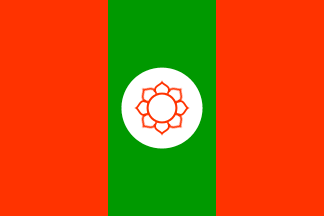 |
 |
 |
|
Silencing dissent, Dipendra Jha
The arrest and subsequent processing of CK Raut hints at political interference and is highly suspect Curtailing rights Two of the key components of the Interim Constitution—secularism and federalism—have been opposed time and again by leaders Kamal Thapa, who is advocating for a Hindu state, and Chitra Bahadur KC, who is advocating against federalism. Thapa and KC have never been arrested for their views. Rather, they have received space in the mainstream media. So why then was Dr CK Raut arrested for speaking in favour of rights to secession in the new constitution? Raut’s arrest displays the double standard of the government and the differential application of the law when it comes to members of different communities. If the state mechanism is so against Raut’s campaign for an independent Madhes, perhaps it could first question senior Maoist leader Baburam Bhattarai, who had invited Raut to Singha Durbar through an official letter to express his views. In a real democracy, all citizens have the right to express their personal views in peaceful ways. The refusal to do so can ultimately manifest in violence. French philosopher Voltaire is supposed to have said, ‘I disapprove of what you say, but I will defend to the death your right to say it.’ The 1789 French Declaration of the Rights of Man assured the expression of thought and ideas as a fundamental right. And this right has since become a cornerstone of democracy, mandating the state to protect freedom of expression. Hence, Raut’s arrest is objectionable, as it curtails a freedom enshrined in Article 19 of the Universal Declaration of Human Rights, Article 19 of the International Covenant on Civil and Political Rights, and Article 12 (A) and 15 (1) of the Interim Constitution of Nepal. Principle 6 of the 1995 Johannesburg Principles on National Security, Freedom of Expression, and Access to Information elaborates that freedom of expression may be punished as a threat to national security only if a government can demonstrate that the expression is intended to incite imminent violence; it is likely to incite such violence; and there is a direct and immediate connection between the expression and the likelihood or occurrence of such violence. Still, it is not difficult to understand the motive behind Raut’s arrest. The Sushil Koirala-led new government has been adopting a two-pronged strategy to curtail freedom of expression. On the one hand, it is trying to enact restrictive laws to curtail individual’s freedom of expression and on the other, it is using security agencies to intimidate those critical of the government and those in power. ‘Certain communities’ The cases of Raju Sah from Bara and Abdul Rehman from Saptari are two exemplars. Sah was arrested for angrily posting a comment on Facebook over Home Minister Bamdev Gautam’s flagrant violation of traffic rules, captured in a photo and circulated on social media. Similarly, police arrested Rehman for posting a comment that said he had to pay Rs 50,000 to get back his stolen motorbike. And now, Dr Raut’s arrest, which clearly reflects the character of this so-called democratic government, led by the Nepali Congress, which has always portrayed itself as the protector of freedom. As far as Raut’s views go, if a significantly large number of people vote to secede or separate, no power can force them to stay. Jawaharlal Nehru, the first prime minister of independent India, repeatedly argued, “The question of accession in any disputed territory or state must be decided in accordance with the wishes of the people”. Take the recent example of the referendum in Scotland. A majority of voters ultimately voted to remain with Britain and the voice for secession from the union was defeated. But in case the vote had gone in favour of separation, the democratic process would have had to be respected. Amnesty International, the Asian Human Rights Commission and several other human rights organisations have asked the Nepal government for Raut’s unconditional release. The Nepal Police held Raut in custody for more than 24 hours without any charge and later, only charged him under the vague Public Offence Act. Subsequently, the Morang District Administration Office provided permission to hold Raut under remand for six more days. After the filing of a habeas corpus writ at the Supreme Court by Raut’s brother, Raut was finally charged with treason. Raut has since become a prisoner of conscience. Intolerant of dissent This whole process is suspect, given that Raut was first arrested, charged under the Public Offence Act, and later, for treason. If charged and convicted of sedition, Raut could be sentenced to life in prison. The charges against Raut hint at political influence in due process. When laws and politics overlap, there is always a risk of the violation of the right to a fair trial, as granted by the Interim Constitution. Moreover, the way Raut was brought to court—handcuffed—shows the discretionary behaviour of the government towards certain communities. This could hurt the sentiments of the Madhesi community. So this is the right time for the international community and the Nepali media to speak in favour of freedom of expression. UCPN (Maoist) Chairman Pushpa Kamal Dahal has demanded Raut’s immediate release. After a few days’ silence, all Madhesi parties also called for his immediate release. The Madhesi community is keenly expecting the support of the UN and Nepal’s diplomatic community. But they have maintained a mysterious silence. Raut has not been convicted of a crime yet; he was simply arrested for exercising his freedom of expression. He has not been involved in any type of violent activity. The primary icons of his campaign are Mahatma Gandhi and Nelson Mandela. Non-violence is one of his key principles, so there is no reason for the state to be intolerant of his views. Pity the nation that feels the need to silence its intellectuals for speaking their mind. Jha is an advocate at the Supreme Court Posted on: 2014-09-30 09:03 |
